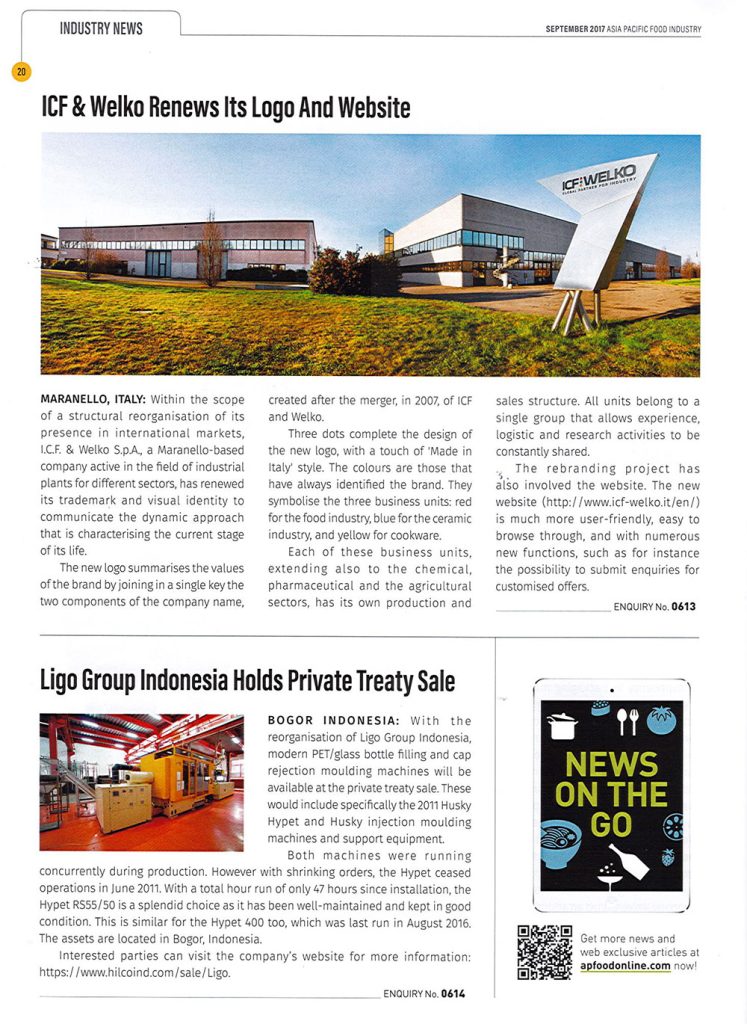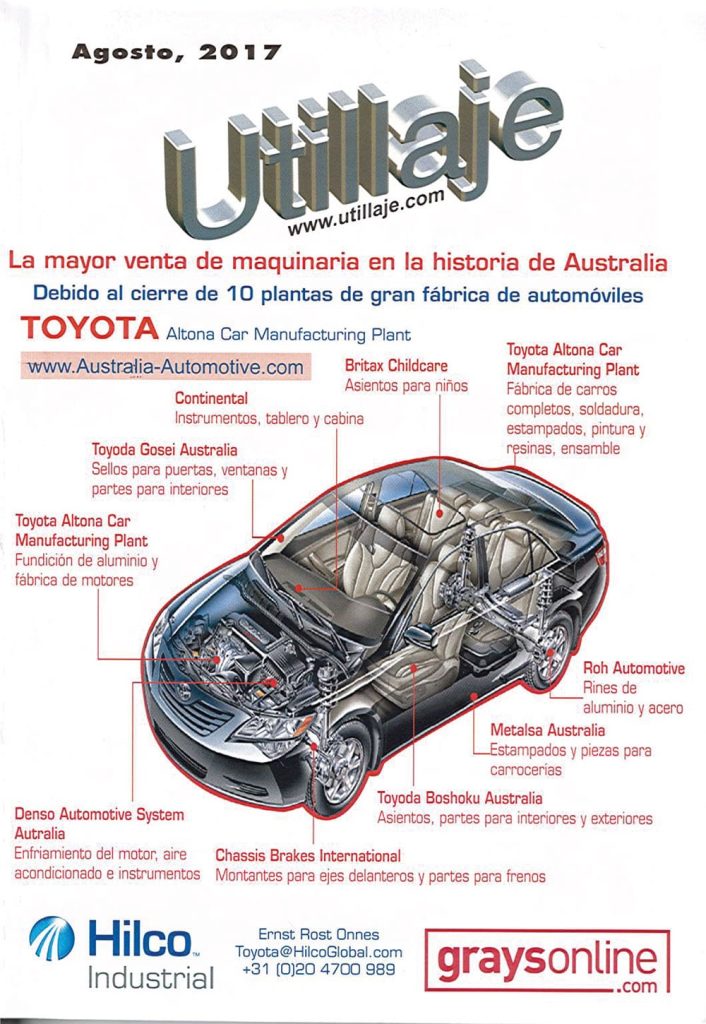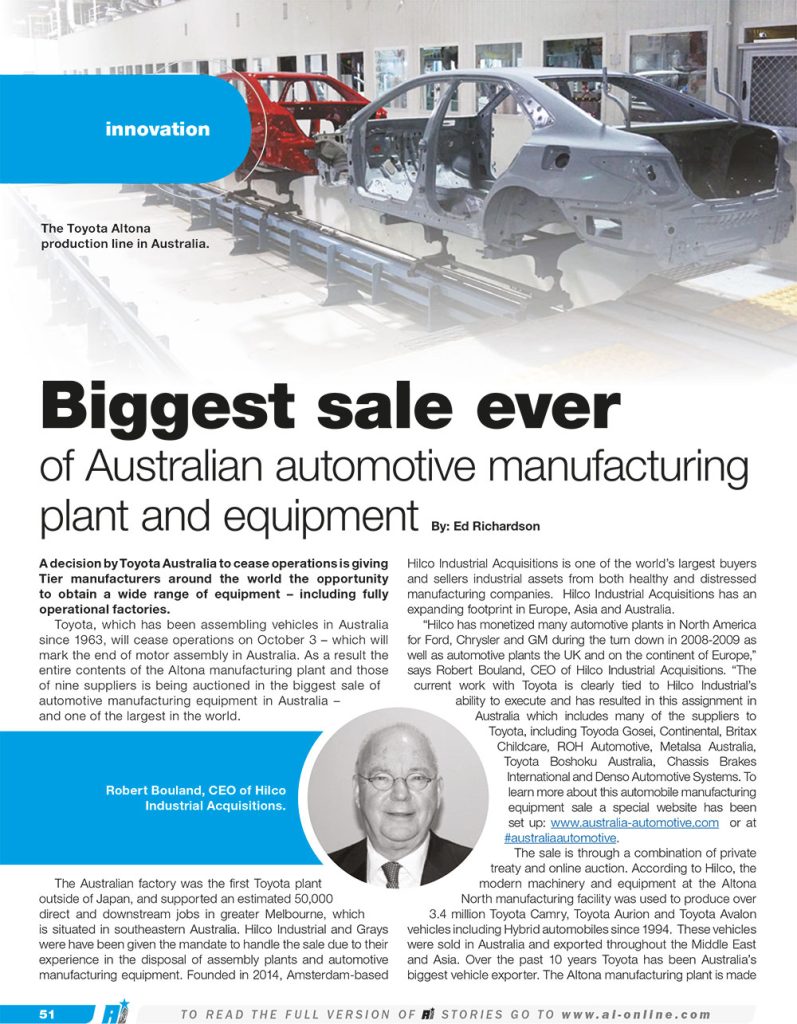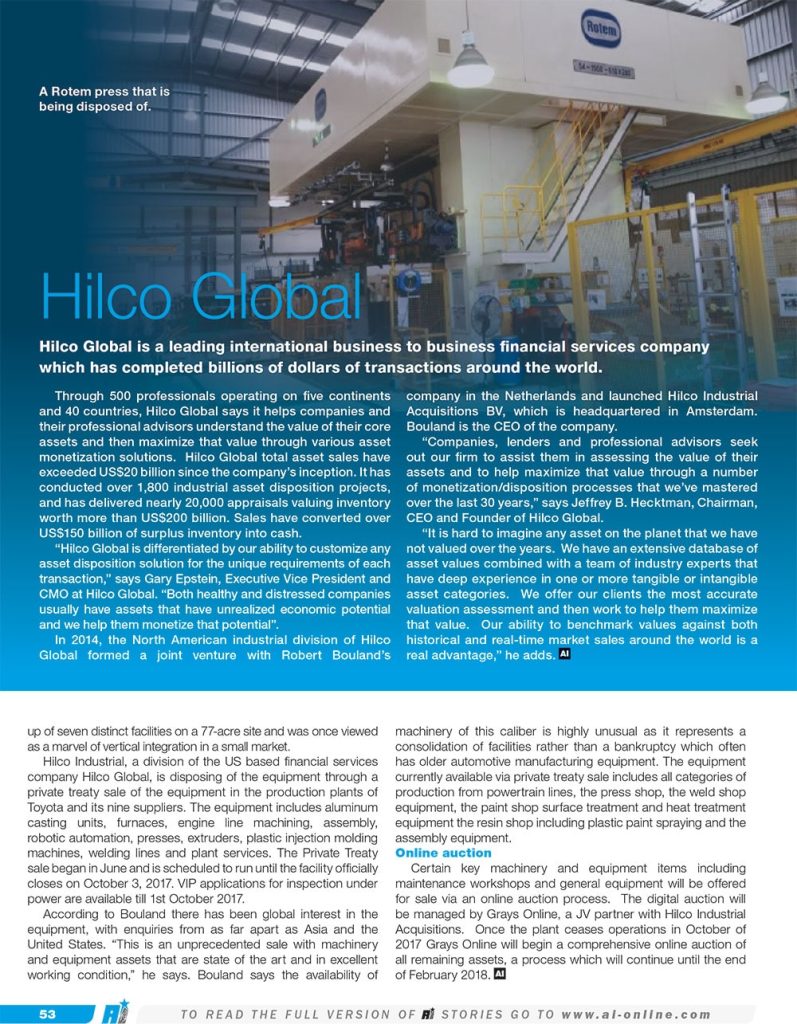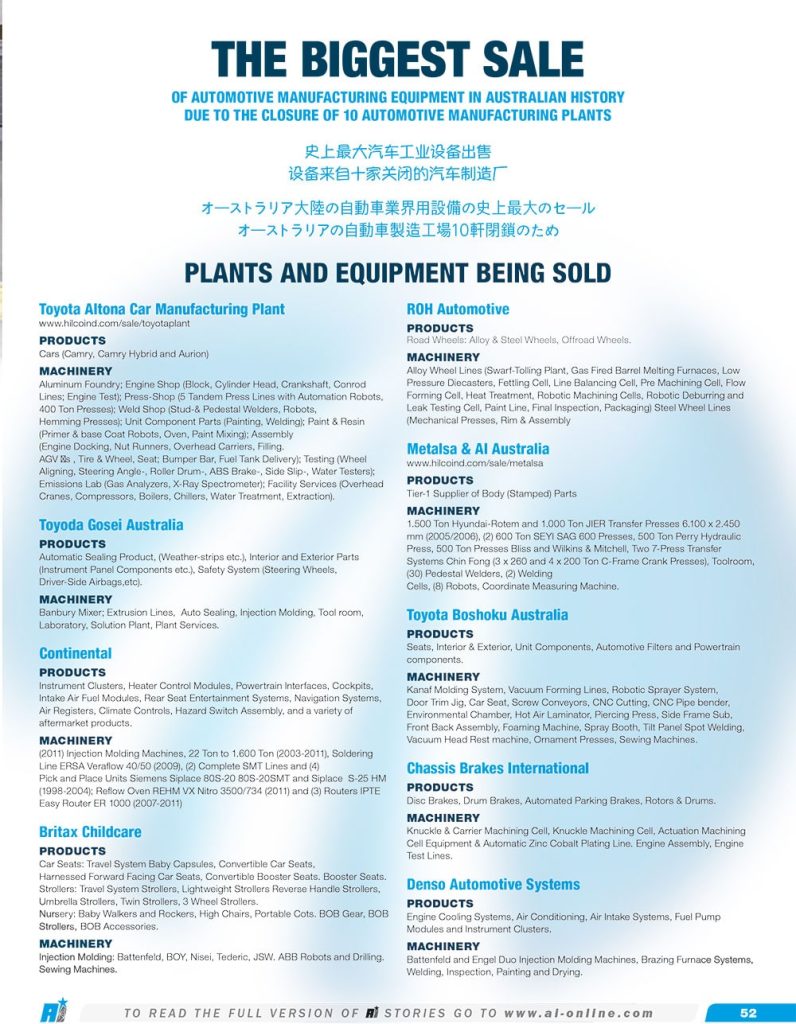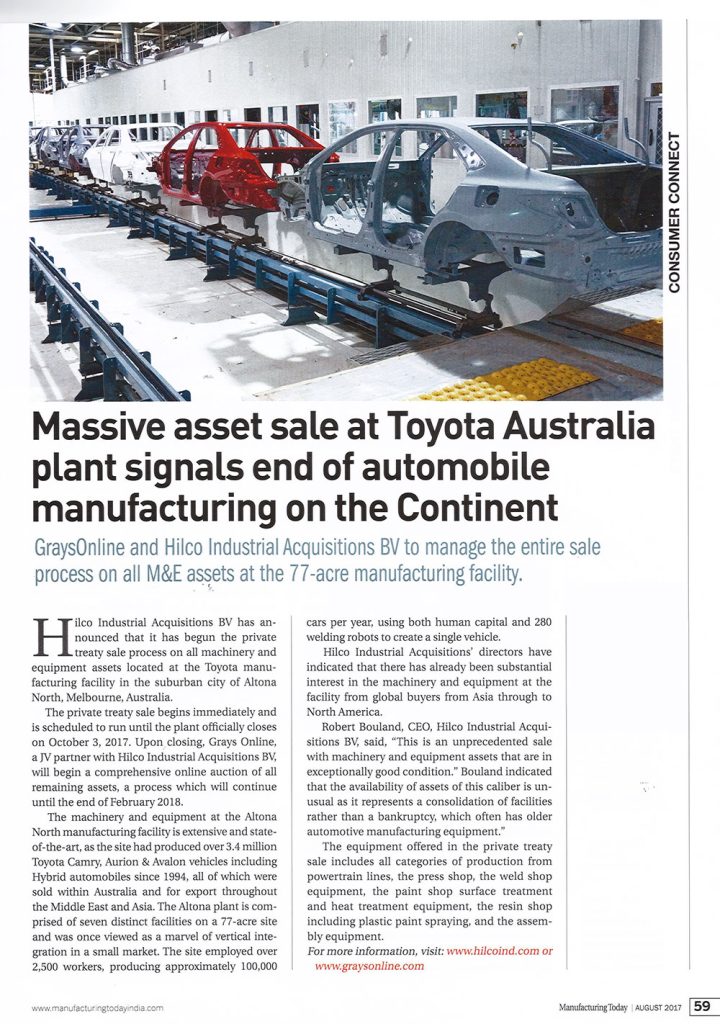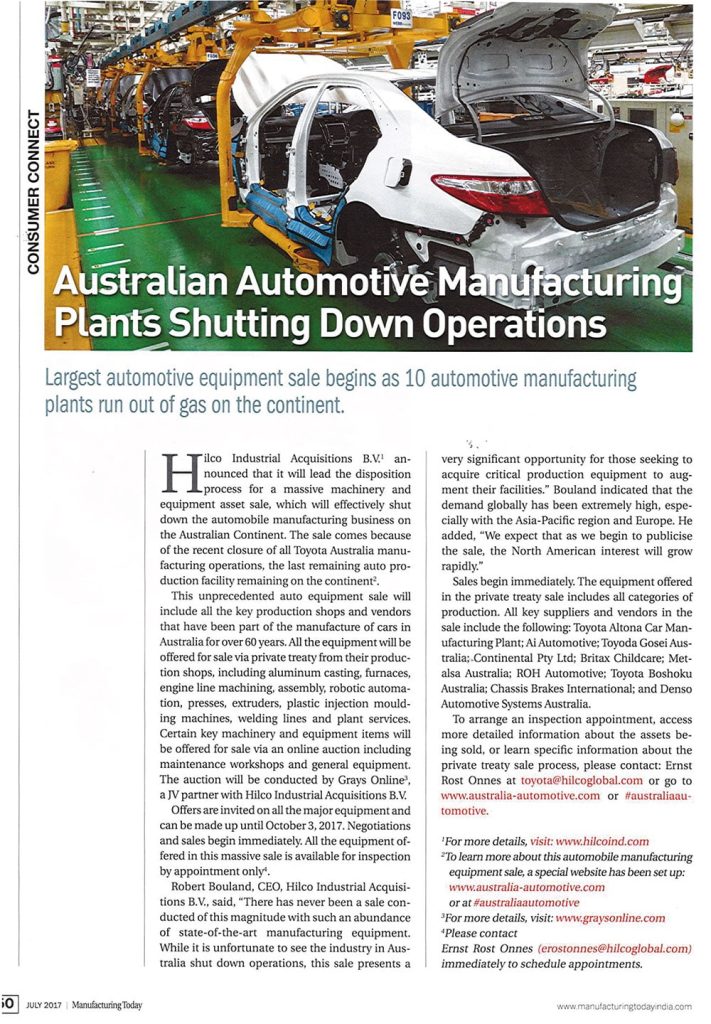Hilco Redevelopment Partners (HRP) announced that the company will invest hundreds of millions of dollars to decommission, demolish and remediate the former PES Refinery site, a site that has been a source of pollution for more than 150 years. HRP, the real estate development unit of Hilco Global, remediates and redevelops complex and obsolete industrial properties in cities nationwide.
The significant investment will finance a massive and complex decommissioning, demolition and remediation plan to put the site back into commerce by transforming it into a state-of-the-art logistics hub that will attract dozens of world-class companies, employing thousands of workers onsite when complete.
HRP’s plan takes a strongly coordinated, holistic approach to decommissioning, demolition, remediation, and development to achieve the requirements of the Pennsylvania Department of Environmental Protection regulations. HRP is actively coordinating its work with a company responsible for certain historical environmental remediation work at the former refinery. The environmental clean-up is part of a multibillion-dollar development plan that will include 13 to 15 million square feet of environmentally conscious, modern facilities.
To accommodate the proposed development schedule, HRP’s plan will be conducted in phases that allow portions of the site to be decommissioned and remediated as others are being redeveloped concurrently.
“The complexity and scale of the demolition, decommissioning and remediation requires a strategically coordinated, phased approach to put these 1,300 acres back into commerce,” says Jeremy Grey, HRP Executive Vice President. “This plan wouldn’t be possible without our strong partnerships with the environmental agencies and other key stakeholders. In addition to a qualified local project team, our firm has the experience and expertise to successfully and responsibly redevelop the former refinery,” Grey said.
The sheer scale of the clean-up is daunting and a major reason why HRP was the only bidder for the property with a plan to redevelop the parcel, instead of maintaining it as a refinery. Clean-up efforts include the removal of 850,000 barrels of tank product, including hydrocarbons, residential fuels, and slop oils from the previous use.
The decommissioning and demolition include removing some 950 miles of pipeline, which is enough to stretch from Philadelphia to Jacksonville, Florida, and the abatement of approximately 30,000 tons of asbestos. Demolition also includes a labyrinth of industrial infrastructure and equipment left behind by what was once the Northeast’s largest refinery.
The redevelopment plan includes the demolition of some:
- 105 on-site buildings
- 3,000 tanks and vessels once used to heat, hold and refine hydrocarbons
- 25 hydrocarbon processing units
- Two boiler rooms
- Two wastewater treatment plants
As part of the plan, most of the demolished material will be recycled or reused in key aspects of the development. This will divert thousands of tons of materials from going to landfills and eliminate the need for trucks to haul certain demolished materials. Recycling one ton of cement can save up to 1,360 gallons of water.
As part of the soil management plan, HRP will analyze and document soil impacted by past operations and deal transparently with its movement and placement on the site. In recognition of rising sea levels, key portions of the site, including future parking lots, are being raised above the 100-year floodplain. Other areas will be lifted above the 500-year floodplain.
About Hilco Redevelopment Partners (HRP): Hilco Redevelopment Partners (www.hilcoredev.com) is a trusted partner and principal real estate investor focused on maximizing the value of obsolete industrial sites through responsible redevelopment. As the industry leader in successfully completing large scale industrial real estate redevelopment projects, HRP is committed to delivering transformative developments and creating economic growth for all stakeholders. HRP is focused on creating exceptional value by developing and managing state-of-the-art warehouses, fulfillment centers, and industrial facilities located near major transportation hubs, ports, and strategic infrastructure assets to create supply chain efficiencies for end users. HRP’s facilities are developed to meet our customers’ needs by locating in markets with strong labor pools near major population centers.

